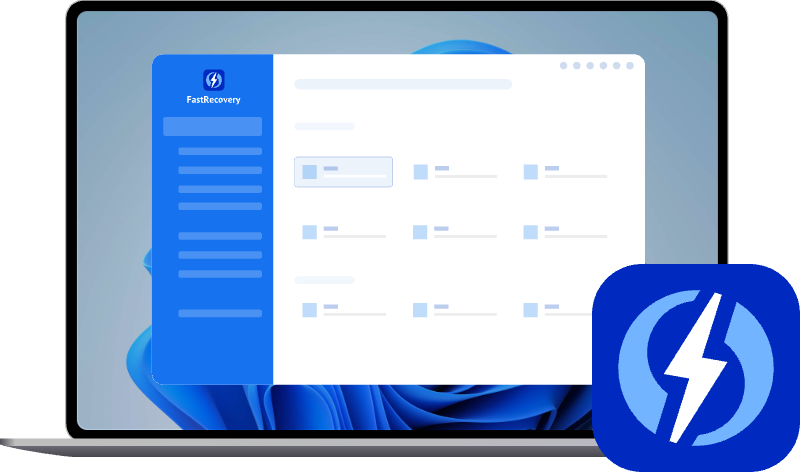My EFI Partition Missing? 4 Fixes!
My EFI partition missing! Figure out what does EFI partition do and how to recover deleted/missing EFI partition via four feasible ways on this page. And you can also recover deleted files from the restored partition.
Help! My EFI partition missing!
What does EFI partition do?
The EFI, short for Extensible Firmware Interface, system partition, commonly referred to as ESP, serves as a critical section on a data storage device, typically a hard disk drive or solid-state drive. This partition is specifically employed by computers equipped with the Unified Extensible Firmware Interface (UEFI).
Upon booting a Windows, the UEFI firmware will automatically load files stored within the ESP to begin installing operating systems and a range of utility programs. However, if your EFI partition goes missing, your Windows OS will display you an error message Error loading operating system because the EFI partition is a necessity for booting PCs.
But plenty of users have reported that their EFI partition missing because of deletion or other reasons. After that, they cannot boot their Windows. Let’s look at one case below.
Today, I decided to clean install Windows 10 on my new SSD and format the old one. I used the pen-drive installer to install Windows 10 on my SSD but when I got to Disk Management to format my old HDD, I found my SSD did not have a Recovery Partition and an EFI partition. I guess when I open the Operating System Screen, it uses the EFI stored on the HDD. I’ve installed all my programs (which was a pain). But I don’t want to do it again. So is there a way to recreate the missing EFI partition and Recovery Partition without reinstalling Windows on my SSD? Thanks.
- A user from the Microsoft Community
If you’re also caught by a missing EFI partition or a deleted EFI partition like the above user, please read further to find feasible ways to recover your irreplaceable EFI partition.
Part 1. How do I fix a missing EFI partition?
As stated earlier, this part aims to help you restore deleted EFI partition Windows 10/11 or recover missing your EFI partition.
Fix 1. Restore the deleted/missing EFI partition with partition recovery software
If you want to restore deleted EFI partition in Windows 10 computer, you need to create a bootable media first because Windows OS cannot boot without the EFI partition. After booting, you can recover your deleted EFI partition.
🎈 Phase 1. Make a bootable USB media with AOMEI Partition Assistant
For the sake of safety, it’s a wise choice to make a bootable USB media via this powerful partition management software, AOMEI Partition Assistant.
-
Please prepare another working PC.
-
If your budget allows, you’d better use a blank USB because this process will erase all the existing data on your USB drive.
Step 1. Connect your USB to another working PC > run AOMEI Partition Assistant > click Make Bootable Media > Next.
Step 2. Select USB Boot Device > choose your connected USB drive > Proceed.
Step 3. Click “Yes” to format your connected USB stick and begin making a bootable USB media.
🎈 Phase 2. Restore deleted EFI partition Windows 10 via four steps
With bootable media available, you can boot your Windows. Then you can recover your missing EFI partition via AOMEI Partition Assistant because this multi-function utility also can recover deleted or lost partitions in Windows 11, 10, 8, 7, Vista, XP, or Server.
-
Support NTFS partition recovery, and Ex2, Ex3, and Ex4 partition recovery.
-
Handle improper partition size, partition recreation, partition merge, and partition split.
-
Convert MBR to GPT without data loss and perform OS migration.
Step 1. Connect your USB bootable media to the unbootable PC > enter the Boot menu > change the boot order to boot from the bootable USB media.
Step 2. Open AOMEI Partition Assistant > click Partition Recovery Wizard > choose the drive where the EFI partition was deleted > click Next.
Step 3. Select Fast Search > click Next. If Fast Search cannot find your deleted EFI partition, please select Full Search.
Step 4. After scanning, you’ll see all the recoverable partitions on the hard disk. Please select your desired EFI partition and click Proceed to go on.
After seeing the Congratulations message, you can click Finish the exit the window.
Fix 2. Recreate EFI partition via Diskpart
If you fail to recover the deleted EFI partition, you need to create an EFI partition and install EFI boot loader to make the hard drive bootable.
Step 1. Boot your PC from a Windows installation disc or recovery disk > type cmd in the search bar > click Run as administrator to open it.
Step 2. Type the following command lines to shrink a partition.
diskpart
list disk
select disk x (x refers to the disk number of the disk that needs an EFI partition)
list partition
select partition n (n refers to the partition number of the partition that needs shrinking)
shrink desired=500 (shrink the partition by 500MB)
Step 3. Please type the following command lines to create an EFI partition via unallocated space.
create partition efi
format fs=fat32 quick
assign letter=Y
exit
Step 4. After creating these two partitions, please enter bcdboot C:\Windows /s Y: in the command prompt window.
After that, restart your Windows to see if it is fixed or not.
Fix 3. Try to use Automatic Repair
If you’re facing issues with your EFI partition or partition table, Windows Automatic Repair can be a straightforward solution. It’s a built-in diagnostic tool designed to detect and fix boot-related problems on your drive.
Keep in mind that its success depends on the specific issues your drive is experiencing, but it’s a convenient starting point for addressing these problems.
Step 1. Boot your Windows PC > turn it off before finishing the boot process > repeat these steps three times > turn on your PC.
Step 2. Automatic Repair will automatically launch and try to fix these issues.
Fix 4. Reinstall Windows
If all else fails in your attempts to recover a deleted EFI system partition through the methods mentioned earlier, reinstalling Windows becomes a viable method because this process can ensure a new EFI partition will be automatically generated.
Part 2. How to recover data from deleted partition Windows 10/11?
EFI partition loss can have far-reaching consequences, potentially impacting other areas of your storage. For example, if some of your files are missed after restoring the deleted partition, can you recover data from deleted partition Windows 10?
Without regular backups, you can use one of the best Windows data recovery software like AOMEI FastRecovery to recover deleted and missing files from partitions or hard drives.
Supported by its advanced scanning method and high recovery rate, AOMEI FastRecovery excels in searching and recovering all the retrievable files on your restored partition.
💚 Please stop loading new files to your Windows to prevent data coverage. After data erasure, it can decrease its Windows data recovery rate.
💚 After recovery, please save your recovered missing files in another drive instead of the original restored partition.
💚 Upgrading AOMEI FastRecovery is a more cost-effective choice for those users who prefer to recover plenty of deleted or missing files.
Recover 200+ types of files: images, audio, videos, MS Office files, WPS files, folders, compressed files, websites, etc.
Combined scanning method: AOMEI FastRecovery can automatically run Quick Scan and Deep Scan to detect all the recoverable files on your selected local drive.
Easy-to-find: After recovery, AOMEI FastRecovery can keep the original format, filename, path, and size for the deleted files.
Excellent compatibility: Support Windows 11, 10, 8, 7, or Server PC and 4 file systems (NTFS, FAT32, exFAT, and ReFS).
Step 1. Launch AOMEI FastRecovery on your Windows > hover the mouse over the drive that saves your needed files before data loss > click Scan.
Step 2. After clicking Start Scan, AOMEI FastRecovery can automatically run Quick Scan and Deep Scan to detect all the recoverable files on your selected partition.
During scanning, you can filter/preview your desired files according to Filename, Document Type, Path, Size, Date, etc.
- Name: Enter the filename of your wanted files to narrow the search area.
- Date modified: Set the date (today, yesterday, last 7/30 days, etc.)
- Size: Filter file size (<128KB, 128KB~1MB, 1MB~512MB, etc.)
Step 3. Under the Deleted Files/Recycle Bin/Other Missing Files folder, choose the files you intend to retrieve > click Recover x files.
Relevant Q&A about the EFI partition
It’s easy to see that accidental deletion or corruption can render the EFI system partition non-functional. Then you cannot boot into Windows. In this case, there will be no better way than using AOMEI Partition Assistant to create a bootable USB media and recover the deleted EFI partition because this multifunction tool offers you easy-to-follow steps and a high partition recovery rate.
If there exists data loss after partition recovery, you could ask for help from AOMEI FastRecovery.
What’s more, if you’ve made regular backups via this free AOMEI Backupper Standard before data loss, you can restore your desired files from backups directly without using third-party tools.
Best free Windows backup software for personal use.
What does EFI partition do?
The EFI system partition (ESP), assumes the critical role of serving as an OS-agnostic repository for UEFI boot loaders, applications, and drivers, all of which are orchestrated into action by the UEFI firmware. It is mandatory for UEFI boot.
Is it OK to delete EFI partition?
The EFI system partition cannot be deleted easily due to its protective nature. Windows’ built-in tool, Disk Management, doesn’t allow you to delete it. Trying to remove the EFI partition is risky because doing so would render the system unbootable.
What happens if there is no EFI partition?
If your Windows EFI partition missing, your Windows computer will likely display the Error loading operating system after it fails to boot correctly. Because the EFI partition contains the necessary files to boot your computer properly.


